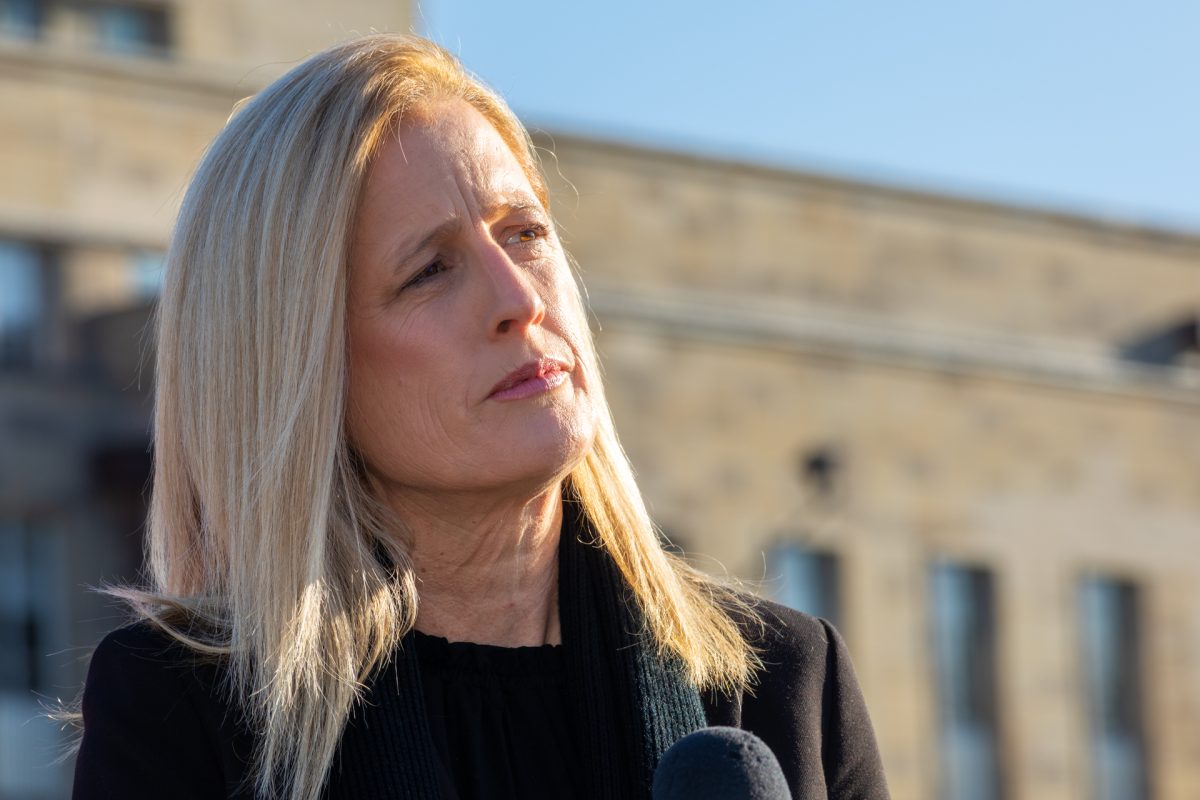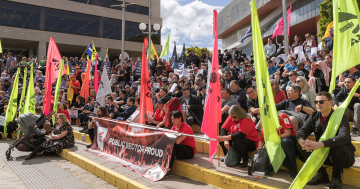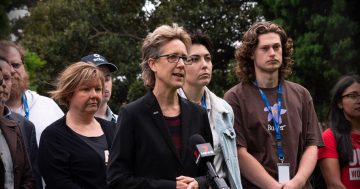
Finance and Public Service Minister Katy Gallagher taking questions about (among other things) APS negotiations. Photo: Michelle Kroll.
Employees hoping to reach and hold Executive Level 2 positions in the Australian Public Service will have to undergo cultural competence training, under an agreement reached between the government and unions in ongoing negotiations.
First Nations public servants across all levels of the APS will get six days off over two years for ceremonial purposes, plus one day’s leave each year for NAIDOC.
Cultural leave for non-Indigenous employees will also be accessible at similar rates to fulfil religious and cultural obligations.
The Australian Public Service Commission has reached a broad agreement with employee representatives on another 10 common conditions to be included in all APS enterprise agreements.
That brings the running total so far to 24 common conditions that have been agreed on, with a few more close to achieving broad support.
What remains a sticking point, however, is disagreement over APS wage increases.
In a negotiations update to staff, the APSC has signalled it is so far not prepared to up its offer of a 10.5 per cent pay rise over three years.
“The Commonwealth has not decided at this stage in the APS bargaining process if it will revise its pay offer,” the statement says.
“And we will update bargaining parties and APS employees as soon as we can.”
The stalemate signals further Community and Public Sector Union-led industrial action at Services Australia is likely.
The CPSU is holding out for a 20 per cent wage increase over three years.
In a video statement to CPSU members, national secretary Melissa Donnelly said public servants deserved such a pay rise and the union isn’t about to back down.
“We will continue to work together to build pressure and ensure the APSC and the government shifts its bargaining position,” she said.
“This government talked a lot about getting wages moving. Now it’s important that the government steps up and delivers on that for its own workforce.”
Speaking to journalists on Tuesday (8 August), Finance and Public Service Minister Katy Gallagher said the government would continue working with the CPSU and others to reach an agreement on wages.
“We’ve got an offer of 10.5 per cent on the table over three years. It seems that the unions have said no to that. So we’ve got some more work to do with them,” Senator Gallagher said.
“This isn’t unusual that we would go through this, you know, I guess negotiation that we’re doing at the moment.
“So we’re negotiating not just on pay, but on conditions and cleaning up some of the fragmentation that’s occurred over the last decade.
“So this is the first genuine bargaining that’s occurred in the APS in a long time.
“I don’t think it’s any surprise that there’ll be a few bumps along the way to getting a final resolution, but I’m hopeful we’ll be able to land that … well, hopefully soon.”
APSC chief negotiator Peter Riordan has moved to assure employees that no one will be disadvantaged under the new arrangements being reached.
“You will keep any better conditions for entitlements that exist in your current enterprise agreement,” his statement said.
“The broadly supported common terms will set a base standard to develop commonality across the APS.”
The focus on First Nations conditions is a priority for the APS, with a commitment to progressing the employment and retention of Aboriginal and Torres Strait Islander employees across the service.
The conditions just agreed on include a range of entitlements aimed at benefiting First Nations employees.
They involve greater consideration of the cultural needs and connections, including mandatory cultural competence training for EL2s.
A community language allowance of $26.53 per week will be paid to anyone required to use a First Nations language in their APS role.
If the language use requires higher level skills, such as interpreting, the allowance will be higher.
More generally, claims for extended Christmas lockdown arrangements and leave around the machinery of government changes have not been supported by the APSC.
Original Article published by Chris Johnson on Riotact.











